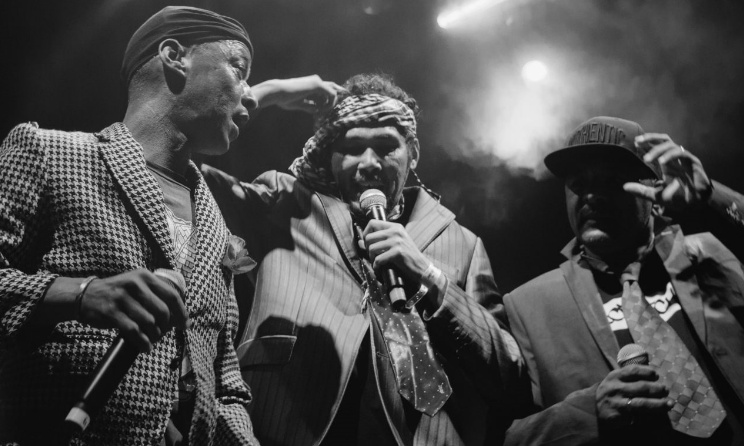
During the tumultuous era of apartheid, which officially lasted from 1948 to the early 1990s, various art forms became outlets for expressing the collective frustration and defiance against the oppressive regime. Hip-hop, with its roots in marginalized communities, provided a platform for South African artists to narrate their experiences and convey the struggles of their people.
One notable example is the emergence of socially conscious hip-hop groups like Prophets of the City (POC) in the late 1980s. POC, comprised of artists from diverse backgrounds, utilized their lyrics as a form of protest, shedding light on the harsh realities of life under apartheid. Their music became a catalyst for awakening, inspiring individuals to question the status quo and unite against racial segregation.
The beats and rhymes of hip-hop served as a counter-narrative to the apartheid regime’s propaganda machine. Artists crafted verses that spoke truth to power, addressing issues such as police brutality, inequality, and the struggle for basic human rights. In doing so, hip-hop became a vehicle for the marginalized to voice their grievances and build a sense of collective identity.
The impact of hip-hop was not limited to the realm of music; it spilled over into other artistic expressions. Graffiti, dance, and fashion became integral components of the hip-hop culture that flourished in South Africa. These elements were not only forms of artistic expression but also visible symbols of defiance, challenging the visual landscape dominated by the apartheid regime.
As the anti-apartheid movement gained momentum, hip-hop’s role evolved beyond mere cultural expression. Artists began collaborating with activists and political organizations to amplify their message. The music became a soundtrack for protests, marches, and gatherings, providing a rhythm for the resistance.
In the post-apartheid era, hip-hop continued to evolve, reflecting the changes and challenges faced by the nation. Artists like HHP (Hip Hop Pantsula), AKA, and Cassper Nyovest emerged as voices of the new South Africa, addressing issues such as economic inequality, corruption, and the ongoing quest for social justice.
Looking back, the influence of hip-hop during the struggle against apartheid was not just musical but deeply cultural and political. It served as a unifying force, bridging communities and providing a voice for those who were silenced. Today, the echoes of those rhymes and rhythms continue to resonate, a testament to the enduring power of hip-hop as a force for change in the face of oppression.
